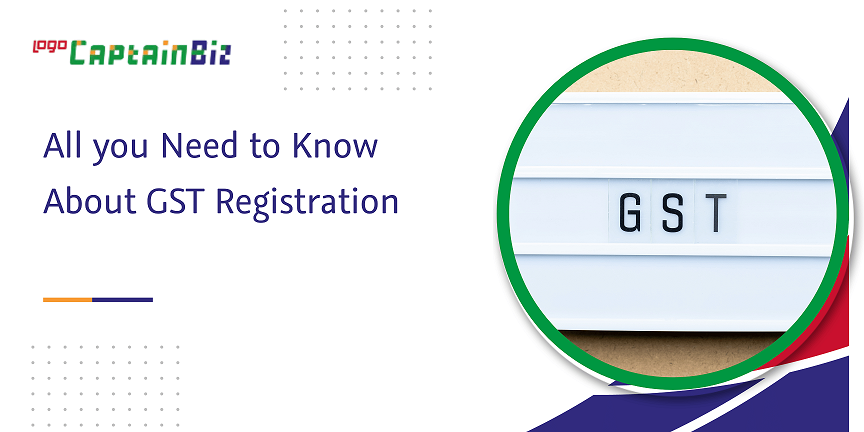From Beginning To End: The Ultimate Roadmap to GST Enrollment for Businesses Looking For Financial Stability
Navigating the complexities of Goods and Provider Tax (GST) enrollment is an essential step for businesses making every effort for economic security. Breaking down the roadmap right into manageable steps can simplify the registration trip for companies looking to improve their monetary standing.
Recognizing GST Essentials
Exploring the essential principles of Goods and Services Tax Obligation (GST) is necessary for obtaining a thorough understanding of its ramifications on services and the economy. GST is a value-added tax obligation imposed on most items and services for domestic usage. It has actually replaced several indirect taxes that existed in the pre-GST age, simplifying the tax obligation structure and enhancing simplicity of doing business in India. Under the GST system, both items and services are exhausted at a details rate, which is determined based upon their classification. If their annual turnover exceeds the threshold limit established by the government, organizations are called for to register for GST. Input Tax Obligation Debt (ITC) is a considerable feature of GST, permitting businesses to claim credit history for tax obligations paid on inputs, decreasing the overall tax concern. Understanding the essentials of GST is crucial for services to adhere to tax guidelines, handle their financial resources successfully, and add to the nation's financial development by joining a clear tax system.
Eligibility Criteria for Registration
To register for GST, companies have to fulfill specific qualification requirements developed by the government. The main qualification requirement is that any type of service associated with the supply of items or services with an annual aggregate turn over over the threshold limitation established by the authorities must sign up for GST. As of the existing policies, the threshold limitation for GST registration is a yearly accumulation turn over of 40 lakhs for companies operating within a state, besides unique group states where the limitation is 20 lakhs. Additionally, particular companies are required to register for GST regardless of their turnover, such as interstate vendors, informal taxable persons, and companies responsible to pay tax under the reverse fee system. It is critical for companies to thoroughly examine their turn over and transaction kinds to determine their GST registration responsibilities precisely. Failing to sign up for GST when eligible can lead to penalties and legal repercussions, making it essential for companies to abide by the defined eligibility requirements.
Papers Needed for Enrollment
Having actually met the eligibility requirements for GST enrollment, companies need to now ensure they have the requisite files in position to wage the registration procedure effectively. The files required for GST enrollment generally include proof of service constitution, such as partnership deed, enrollment certificate, or unification certificate for different kinds of services. In addition, businesses need to supply documents establishing the principal place of company, such as a rental arrangement or electrical energy costs. Frying pan card of business, along with the identity and address proof of promoters/partners/directors, are vital for verification functions. Financial institution account declarations, along with terminated cheques or a copy of the financial institution passbook, are called for to confirm the financial information given throughout registration. Additionally, organizations must have digital trademarks all set for the licensed signatory. Making certain all these documents are arranged and conveniently available will expedite the GST enrollment process, making it possible for organizations to follow tax guidelines perfectly.
Step-by-Step Enrollment Refine
Commencing the GST enrollment process includes a collection of structured actions to ensure a smooth and certified registration for services. The first action is to go to the GST site and fill out the registration kind with accurate information of business entity. Following this, the candidate obtains a Momentary Reference Number (TRN) which is utilized to return to the application procedure if it's not finished in one go.
Next, all called for documents according to the checklist provided by the GST portal demand to be uploaded. These documents normally consist of proof of service identification, address and registration evidence of marketers, monetary statements, and company entity's frying pan card.

Post-Registration Compliance Standards

Verdict
In verdict, companies seeking financial security should recognize the essentials of GST, fulfill qualification criteria, collect essential records, adhere to the detailed registration procedure, and follow post-registration standards - Best GST registration services in Singapore. By sticking to these actions, organizations can make sure compliance with tax regulations and preserve economic stability in the future
In addition, specific companies are required to register for GST irrespective of their turn over, such as interstate vendors, laid-back taxed persons, and companies accountable to pay tax under the reverse fee system.Having actually fulfilled the qualification requirements for GST registration, businesses must moved here currently guarantee they have the requisite documents in place to continue with the registration process successfully. The documents required for GST enrollment generally consist of evidence of company constitution, such as partnership act, enrollment certification, or unification certification for different kinds of businesses. In addition, services require to give files developing the principal place of company, such as a rental agreement or power expense.Starting the GST enrollment process includes a collection of structured actions to ensure a certified and seamless enrollment for organizations.